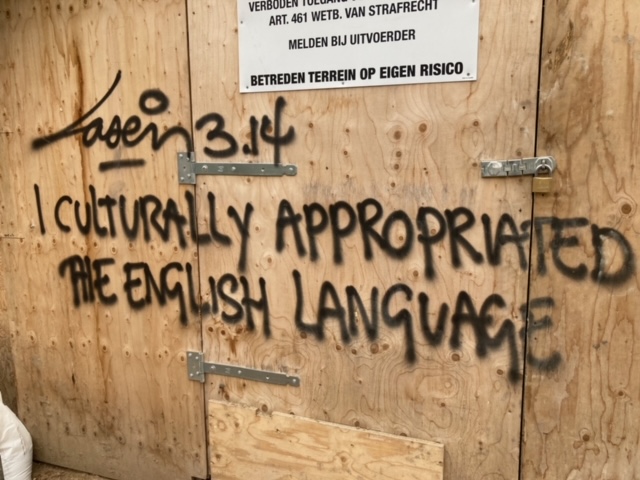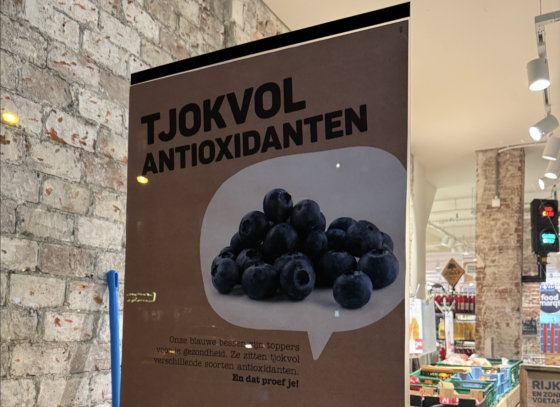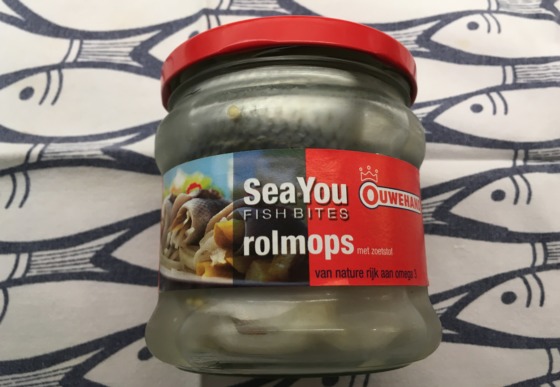Alle hens on dek: politicians to purge English terms from Dutch

It may sound awkward or even cringe but the new cabinet is set to kick-off with a purge of unnecessary English from the Dutch language.
According to insiders, the potential coalition has agreed to create a new government agency to weed out pervasive English terms such as update, salesmanager and toolkit.
“The election campaign was won with a promise to put the Dutchman at number one, but the Dutch language is no longer top-of-mind in our offices, shops and universities,” said initiator and PVV politician Gom Plotdenker.
His Wetenschapsinstituut voor de Ontengelsing van de Taal (WOT) agency will first “unEnglish” official reports and then tackle youth slang in schools, linked with online language migration.
“You hear teenagers describing an invitation, for example, as nice or chill, but this makes no sense in Dutch,” said Tilburg University linguistics professor Onsa Taal, who is advising the WOT. “It’s never cold enough to chill, for a start. And their grandparents cannot understand a word they are saying.”
According to Taal, corporate life is also infested with clumsy Anglicisms, with managers holding scrum meetings around touchscreens to discuss employee experiences over coffee and a single biscuit.
Shops also routinely use sale rather than uitverkoop to advertise special offers. “Even if they have to pay twice as much for longer signs, it’s worth the sacrifice of saying speciale aanbieding,” said Consumentenbond spokesman Onno Digengels, who supports the WOT plan.

“And when did the NS suddenly start running trains to Schiphol Airport? Everybody knows Schiphol is the Dutch word for international airport. If they don’t, they can fly from Belgium.”
The de-Anglicisation campaign in the Netherlands was inspired by the efforts of the Academie Française to replace words such le weekend with less convenient and more convoluted native terms.
It aligns with politician Pieter Omtzigt’s aim to make the country less appealing to international students and slash the number of well-funded, world-renowned English degrees by establishing Dutch as the preferred medium of tuition.
“If we don’t take back control of our native language, it’ll start to resemble a badly spelled, bowdlerised version of English. And then we’ll have a serieus probleem,” said an adviser to Omtzigt’s Nieuw Sociaal Contract (NSC), which is looking for a new name.
Language purity levy
The new language requirements are likely to scupper the advertising sector. “Frankly, terms such as influencer, brand experience and thought leader don’t have a Dutch equivalent because they don’t mean anything in the first place,” said independent PR expert Mark Etting.

Companies with English in their brands like CoolBlue and Booking.com may be forced to pay a 30% additional levy on annual name registration renewals, known as a taalverzuiveringsheffing (language purity levy).
Coffeeshop confusion
Public campaigns are already being planned, according to Bas t’Aard, red tape quality inspector at Weesp council. “To mark the banishment of every English word from our beautiful taal, we will ring the bells of the famous Westerkerk at full volume every 10 minutes for a week,” he said. “Who cares if none of us can sleep? We are making Nederlands great again!”
But experts acknowledge some words will be hard to eradicate, such as coffeeshop, which has left many a tourist high and dry in their search for a decent cappuccino. “The Netherlands is a nation of undertakers who are good at thinking outside the box, but English has become so universal that we’ll need alle hens aan dek,” added Taal.
Garry, a taxi driver from Liverpool, moaned it will soon be impossible for anyone to have a quick chat. “Dutch words are so long that by the time someone finishes their sentence, you’ve fallen asleep,” he said. “I got an ingezetenencriteriumsovertredingsboete letter yesterday. Couldn’t understand a word of it, so I used it to roll a joint.”
Thank you for donating to DutchNews.nl.
We could not provide the Dutch News service, and keep it free of charge, without the generous support of our readers. Your donations allow us to report on issues you tell us matter, and provide you with a summary of the most important Dutch news each day.
Make a donation